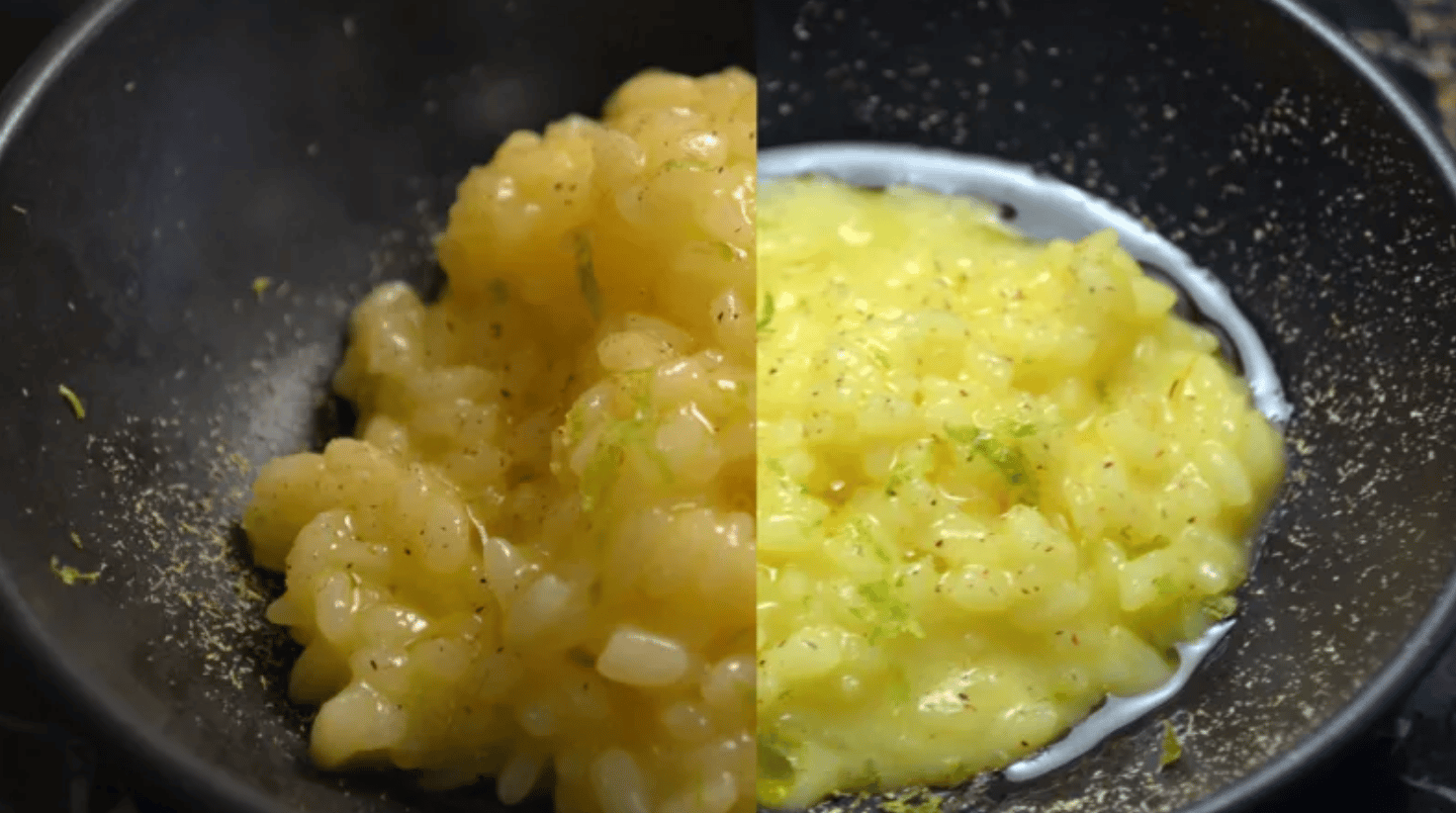In 2015, a Hong Kong restaurant staged a delicious deception. At Serge et le Phoque, diners were served two versions of jasmine-scented risotto laced with licorice root and lime. One version was made with superior ingredients like rich homemade stock, quality rice, and fresh dairy. The other was cobbled together with cheaper stock, lower-cost elements like bouillon cubes and basic pantry staples.
The experiment was the brainchild of branding agency CatchOn and the restaurant’s co-owner of Serge et le Phoque, Charles Pelletier. The twist? The dish made with superior ingredients was served with a nondescript card stating the ingredients.
The inferior version was served by Pelletier himself dressed in chef whites, who presented guests with the dish served with an eloquent backstory.
“When I was a boy in Provence, my grandmother used to make jasmine-scented risotto on lazy Sunday afternoons. Her secret? Licorice root to calm the mind, rice simmered slowly in broth, and a squeeze of lime for brightness. This dish is my attempt to channel that warmth — to bring a moment of comfort and nostalgia to your table.”
Which dish did the diners prefer?

Diners were give two different dishes as part of a taste test experiment. Most preferred the version on the right, made with cheap ingredients, after a chef came and explained the "inspiration" behind the dish. (Image: CatchOn)
77% of participants preferred the “inferior” risotto that came with a story even though it was objectively lower in culinary quality. They described it as richer, more aromatic, and more satisfying. Why? Because by the time diners heard that story — before the first bite — they were already tasting nostalgia, intention, and care. The dish became more than food; it was the chef inviting the diner into his childhood memories.
Once the dish landed on their tongues, their brains filled in the gaps and nudged subtle notes into sharper definition. It upgraded average texture into something noteworthy. Pelletier’s story primed diners’ brains for richness, care, and nostalgia. Their expectations seasoned the dish before the first forkful.
Pelletier’s storytelling performance revealed a truth that every great host already knows: the most powerful ingredient in any experience is the story that frames it.
The Science Behind the Sauce
What happened in that dining room wasn’t culinary magic. It was neuroscience.
When we hear a story, our brain floods with dopamine and oxytocin, the feel-good chemicals of trust, empathy, and pleasure. These neurotransmitters don’t just make us feel warm and fuzzy; they change our perception. The brain literally reinterprets sensory data — including taste — to align with what it expects to experience.
This is called top-down processing — the way our thoughts, emotions, and context shape how we perceive the world. It’s the same reason wine tastes better when you believe it’s expensive or chocolate feels silkier when it’s in elegant packaging.
In hospitality, storytelling transforms service into something guests can feel. A well-told origin story about your signature cocktail, the name behind your burger, or the reason a dessert is plated the way it is can prime the guest’s brain for delight.
Storytelling gives context, emotion, and identity — three key ingredients for connection. Without it, even the finest product can fall flat. With it, even a humble bowl of rice can become unforgettable.
A story turns a meal into a memory, not because it changes the ingredients, but because it changes the perception of them. The mind doesn’t eat passively; it participates, embellishes, and edits every bite.
So, the next time you tell the story behind your dish, your brand, or your team, remember:
You’re not just feeding customers. You’re feeding their brains.
Dr. Melissa Hughes is a dynamic keynote speaker and author who brings brain science to life with contagious energy, humor, and heart. Her programs spark mindset shifts, ignite engagement, and inspire teams to deliver experiences that truly rock. If you want to dig into the science behind exceptional hospitality experiences, Melissa is gifting the digital edition of her new book, Backstage Pass: The Science Behind Hospitality That Rocks, to the first 100 Branded friends and readers. Enter promo code BRANDED to download your free copy today.


